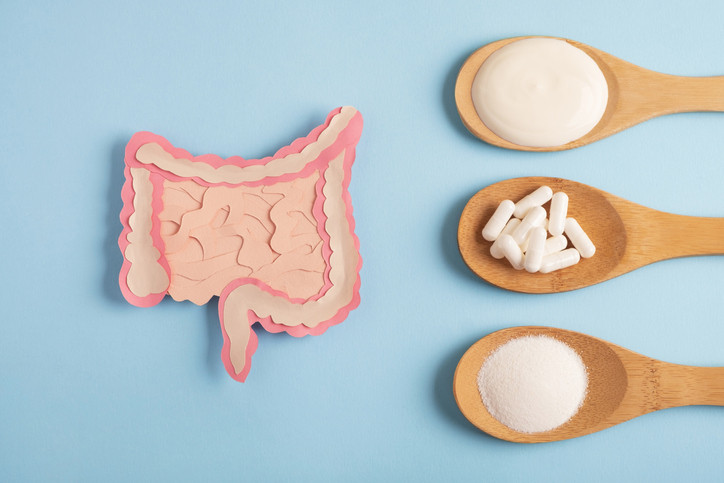Probiotics and prebiotics: what's really important

Probiotics and prebiotics are a hot topic these days. You've likely seen many ads on television and online for supplements and foods that promise to deliver helpful bacteria and their benefits. Here's what you need to know before purchasing these products.
Your large intestine contains 100 trillion "good" bacteria that are essential to health. Called the microbiome, these beneficial microbes help maintain healthy bowel function, and may even help with conditions like inflammatory bowel disease. Research suggests they may even play a role in regulating weight and mood.
Everyone starts with their own unique microbiome at birth. We add to these through the foods we eat.
Here are some of the best ways to add healthful bacteria to your microbiome:
- Yogurt and kefir. Be sure to look for the words "live and active cultures" on the label to make sure you are getting live cultures.
- Fermented foods. Beneficial microbes are the "cooks" for some familiar foods. For example, they turn cabbage into sauerkraut, cucumbers into sour pickles, soybeans into miso, and sweetened tea into kombucha. When the products have been pasteurized — as most packaged fermented foods are — the microbes will be dead. The best solution is to buy from delis where they do the pickling themselves, or natural food stores that carry fermented foods. Or make your own; you can find clear and easy instructions in books and online.
There are also probiotic supplements on the market, of course. But none have proven medical indications. It's best to stick with dietary sources rich in pre- and probiotics.
You can help your body produce healthy gut bacteria. Here's how:
- Include plenty of foods rich in insoluble fiber, which tend to contain the most prebiotics. You'll find them whole-grain products such as oatmeal and whole-grain breads, as well as in vegetables like asparagus, leeks, onions, and garlic, and starchy vegetables like sweet potatoes and corn. Beans, lentils, and peas are also good sources.
- Limit sugar, saturated fat, and processed foods. These can deplete the good bacteria in the gut. As always, try to stick with whole, unprocessed foods.
For more on how to protect your digestive health, check out Making Sense of Vitamins and Minerals, a Special Health Report from Harvard Medical School.
Image: © Elena Nechaeva | GettyImages
Disclaimer:
As a service to our readers, Harvard Health Publishing provides access to our library of archived content. Please note the date of last review or update on all articles.
No content on this site, regardless of date, should ever be used as a substitute for direct medical advice from your doctor or other qualified clinician.
















